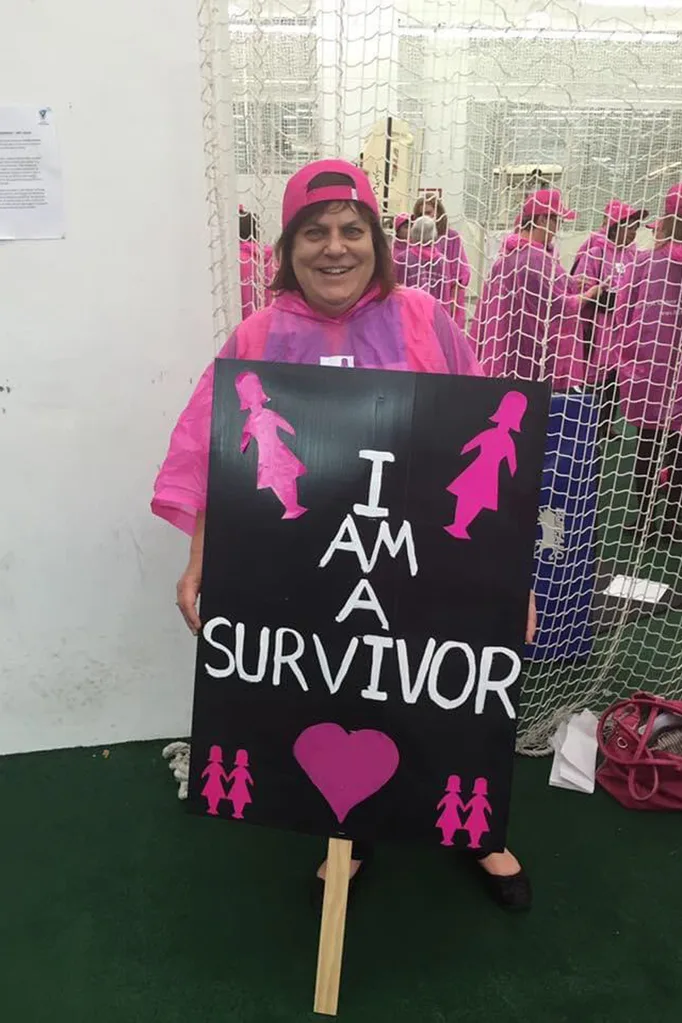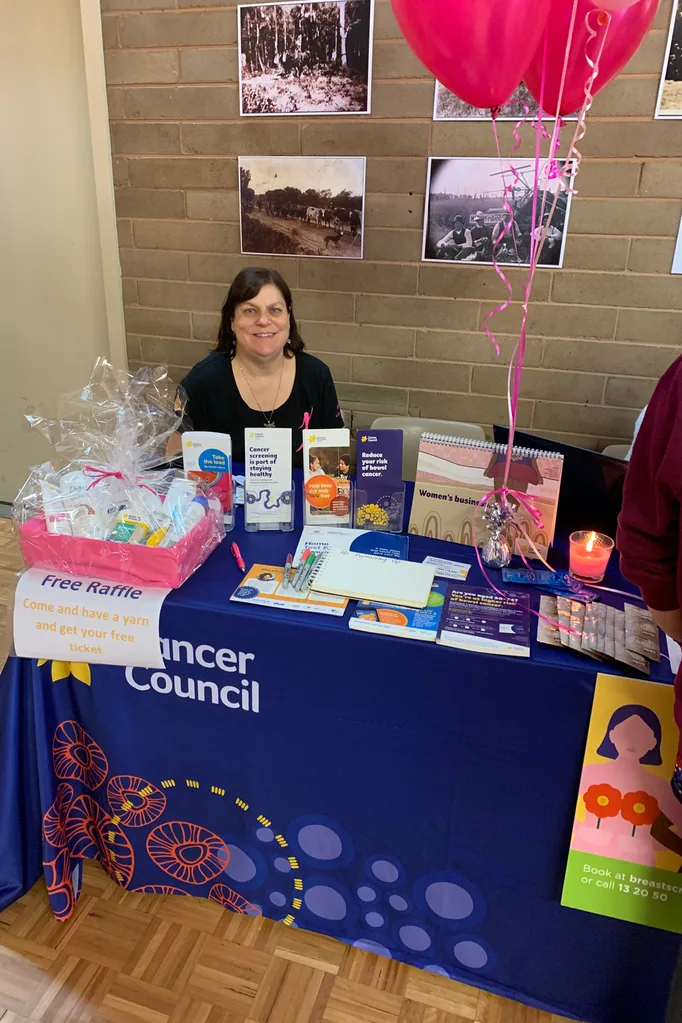While the recent overall picture of breast cancer survival in Australia is improving, this is not the case for all Australians.
For Aboriginal and Torres Strait Islander women, breast cancer is the most commonly diagnosed cancer and the second most common cause of cancer death. And while First Nations women are 0.9 times as likely to be diagnosed, they are 1.2 times more likely to die. This is attributed to a combination of factors including socioeconomic disadvantage, lower participation in cancer screening, younger age at diagnosis, geographic remoteness, co-morbidities, and advanced stage of cancer at the time of diagnosis.

My name is Andrea and I am a 56-year-old, proud Aboriginal woman from Victoria. I want to share my story to encourage Aboriginal and Torres Strait Islander women, and all other women in Australia, to be breast aware, to get their mammograms when they are due, and to find out more information about the best possible treatments they can receive, including getting involved in research through a breast cancer clinical trial.
My breast cancer story starts in 2012, which was a big year in my life. I was 48 years old, in my second last year of studying for my Bachelor of Education. My 17-year son had left home and my 21-year-old daughter had moved to Cairns to study, so it was just my husband Mark and myself at home.
In late August 2012, I felt something in my left breast and went to get checked by my GP. After an ultrasound, where something suspicious was found, and a subsequent ultrasound that was supposed to also include a biopsy, I was told there was nothing there. A month or so later my GP sent me back to get another ultrasound to be sure, mostly because of my strong family history of breast cancer.
Sure enough, something was there.
While I was shocked at the diagnosis, I had always thought I was at a higher risk of getting breast cancer. My grandmother had it, her sister died from it in her 40s and both of my mother’s sisters had it. My mother died at 43 from leukemia.
After a biopsy, I was told I had breast cancer in October 2012, and I had a lumpectomy in November 2012. They found a small amount of invasive cancer, so I had a sentinel node biopsy with three nodes removed in early December. They were all clear, but due to my family history, it was suggested that I have genetic testing before my next lumpectomy.
Consequently, the next lumpectomy was not until March 2013 after which I had five weeks of radiotherapy in April/May 2013. I didn’t heal well from the sentinel node biopsy and I was burnt badly by the radiotherapy requiring me to take a break in the middle of treatment. I also had a few bouts of cellulitis in my breast due to treatment.
I didn’t have a lot of support from family and friends. I’m usually the one who helps others and I didn’t want people to worry so I played down how hard it was for me.
I graduated with a Bachelor of Education in 2013, but never got a full-time teaching job.
In 2017 though, I found the perfect job for me. As a proud Aboriginal woman with a degree in teaching, and as an ambassador for BreastScreen Victoria and the founder of a breast cancer support group, I became the Aboriginal Liaison Officer in Prevention at Cancer Council Victoria.
My job is to go out into the Aboriginal community and educate Aboriginal and Torres Strait Islander people about the need for cancer screening with the three national cancer screening programs; breast screening, cervical screening and bowel cancer screening, and about HPV vaccinations.

I am passionate about ensuring our people know about the screening programs and that we work to find culturally safe and appropriate ways for us to screen, as well as to educate Aboriginal people about the best treatments. Our outcomes are worse for many reasons, but one reason is that cancers are found later and are more advanced so these cancers cannot be treated as easily or successfully as if the cancers were found earlier. Our big message is that early detection saves lives.
To get our women to screen regularly, we need to ensure that they feel culturally safe and welcome at BreastScreen services. Some ways to do this are having group bookings at BreastScreen clinics exclusively for Aboriginal and Torres Strait Islander women. Another way is the great initiative of having the BreastScreen mobile screening services parked at Aboriginal Community Controlled Organisations and having staff from the organisation helping on the screening van.
I am also an IMPACT breast cancer clinical trials advocate for Breast Cancer Trials, helping to spread the message about the importance of clinical trial research. It’s so important that people take part in clinical trials to improve cancer treatments and achieve better outcomes. This is something that I believe is important for me to talk about with Aboriginal and Torres Strait Islander women who may be less likely to take part in trials.
Ensuring women know that if they take part in a clinical trial, they will often receive even more support than if they don’t, is important. The truth is that everyone who participates in a clinical trial receives the best available standard of care, with some also receiving a new treatment, which has already shown promising results in prior research, to see if it is better than the treatments currently available. I would like to say to our people, that taking part in a clinical trial is an important way for us to look after ourselves and for the ones coming after us. We can change the future for our women yet to be diagnosed. And please, do your screening when you’re due.
Early detections save lives! Be screened, live longer. And get involved with clinical trials research, so that we can find the best treatments for future generations.
Andrea is a member of the Breast Cancer Trials IMPACT group whose role is to advocate and educate people about the benefits of breast cancer clinical trials. To find out more about Breast Cancer Trials and the IMPACT program, visit here.










